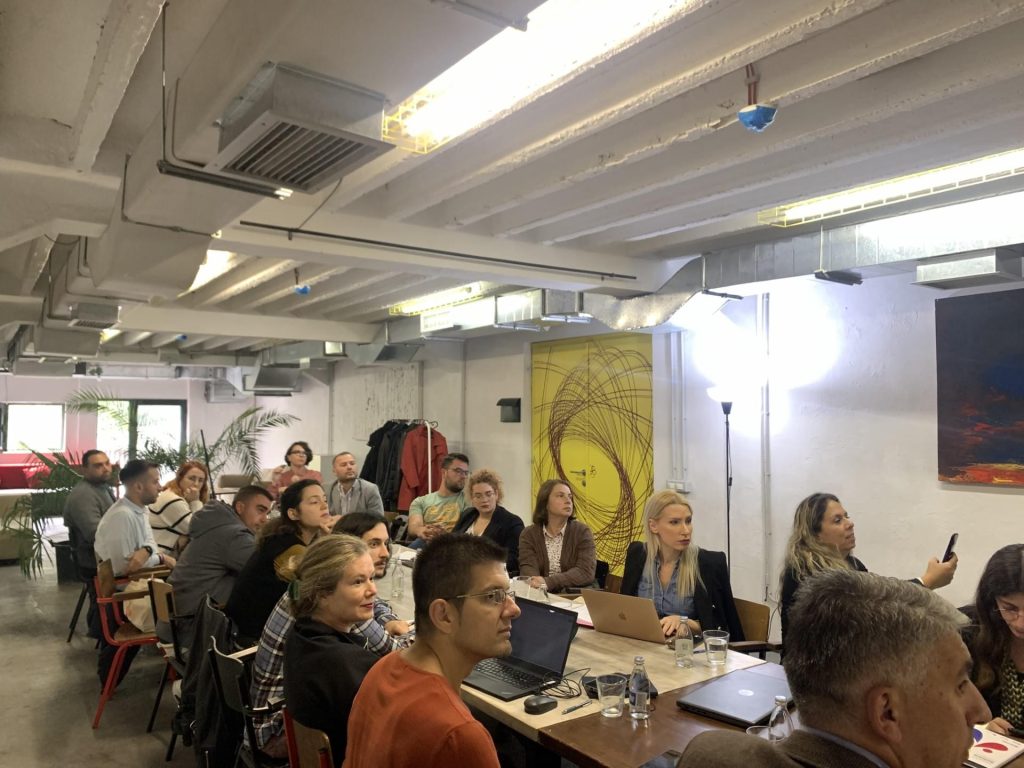October 17th-19th , 2023, Skopje. In a collaborative effort aimed at fostering progress and addressing societal challenges, CRPM partnered with SMART Balkans implementing partners, Centar za promociju civilnog društva i IDM Albania, to organize a dynamic three-day study visit. The initiative, part of the SMART Balkans project, served as a platform for exchanging best practices and experiences among fifteen representatives from civil society organizations across the Western Balkans. Together, they delved into the pivotal role of civil society in tackling environmental issues and combating corruption.
Kicking off the visit, participants engaged in insightful discussions at the Assembly of the Republic of North Macedonia, where they gained valuable perspectives from environmental experts and members of the Macedonian Green Parliamentary Group. Subsequent sessions, held at the Center for Civil Communications (CCC), delved into anti-corruption strategies, particularly focusing on monitoring public procurement and concessions. The day concluded with a workshop led by the Center for Environmental Democracy – Florozon, aimed at fostering collaboration to combat corruption in the environmental sector.
Day 2 spotlighted success stories in the fight against corruption, featuring presentations by representatives from various CSOs. Zekija Memdova Hristova from the Green Institute shared insights into their impactful project related to the “Drisla” case, demonstrating regulatory changes in waste management. Olgica Naumovska from the Environmental Association “VILA ZORA” showcased their achievement in closing the Veles smelter, underscoring the importance of civic engagement in advocating for environmental rights. Additionally, Kiril Ristovski from the Center for Environmental Democracy – Florozon presented a SMART Balkans-supported project aimed at combating environmental corruption, while Bojan Trpeski from the Macedonian Young Lawyers Association outlined litigation mechanisms against environmental corruption.
On the concluding day of our enriching three-day journey, our study visit delved into the operations of two key institutions: the State Inspectorate for Environment and the State Commission for the Prevention of Corruption. These visits afforded us valuable insights into their respective roles and competencies in combating corruption. Notably, both institutions underscored their robust collaboration with civil society organizations, emphasizing the synergy achieved in addressing corruption across various fronts. As our visit came to a close, the final session centered on exploring new avenues for partnerships among regional civil society organizations, with a shared goal of amplifying their collective impact.






